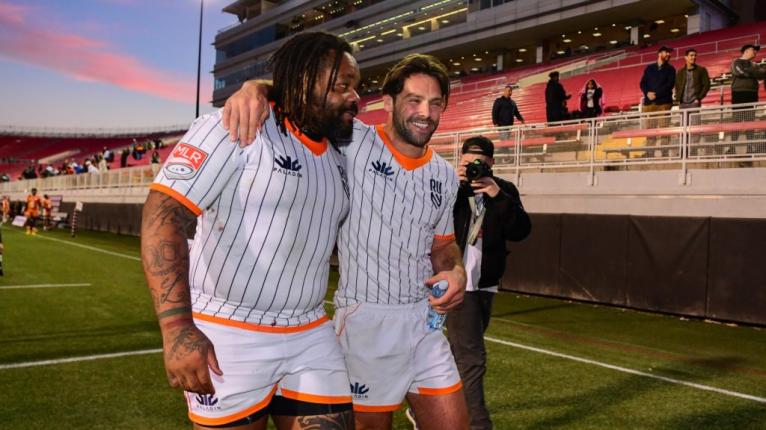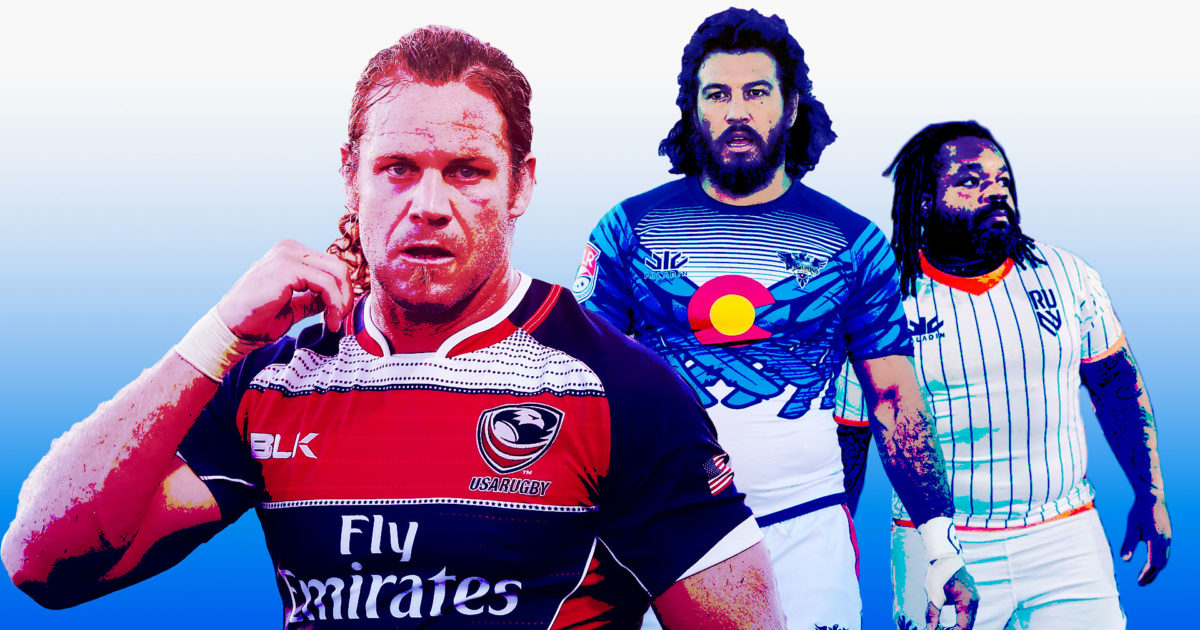'For all of my career playing for the USA, we had guys who were teachers or painters or farmers'

The United States may currently be a minnow of World Rugby, but their potential growth knows no bounds.
They’re blessed with athletic talent and with rugby being one of the ‘Land of the Frees’ fastest-growing sports, there’s no limit to how good the Eagles can be.
The US sporting market is unmatched, but rugby has only just begun reaping the rewards with the idea of professional American rugby sitting idle until only a few years ago.
The Eagles’ all-time games record holder, Todd Clever, was a catalyst for this change even though it didn’t come right away. Following a disappointing 2007 Rugby World Cup campaign, Clever planted the seed for the changes to the professionalism that we’re seeing today through Major League Rugby.
The Eagles were drawn in the pool of death alongside Pacific Island bruisers Tonga and Samoa, as well as defending champions England and eventual victors South Africa, who would face off in the tournament’s penultimate match.
It was a tough task, so going winless wasn’t what bothered Clever the most, it was how outmatched they were.
“That’s when I went to USA Rugby, when I had offers all over, and I said we need to have a professional team. USA Rugby agreed, they said that they would contract 22 players through the national team,” Clever said.
“Unfortunately it didn’t happen, they pulled out of it and that’s when I said, ‘if you can’t invest in your own players, I can’t be sticking around either.’ I looked at the opportunities and that’s when I went to South Africa.”
While change wasn’t immediate, the world’s biggest sporting market were just mere years away from taking large strides as a rugby nation.
In 2016, America brought professional rugby to its shores for the first time with PRO Rugby which was played predominantly on the West Coast. But the competition folded after only one season.
A year later USA Rugby introduced another competition, in Major League Rugby, which has teams spread relatively evenly across the country.
After three years, the competition is thriving after expanding and attracting impressive signings including two-time World Cup champion Ma’a Nonu, former England international Ben Foden and former France captain Mathieu Bastareaud.

Clever played for the then-named Austin Elite in its inaugural season and was also a co-owner of the franchise. He insisted that a successful competition was the “missing puzzle piece” to America finally being able to compete with the world’s best.
“For all of my career playing for the USA, we had guys who were teachers or painters or farmers. You name the profession and we had a big chunk of our squad who were made up of them. They were passionate, they loved it and they were putting their lives on hold, but you can’t really compete against the world’s greats.
“Now that we have it, it’s definitely raised the bar and hopefully that will translate into competing at the higher stages, getting more tier-one victories and better World Cup performances.
“You’ve got to crawl before you can walk, and walk before you run. A big piece of what we still need to do is educate the mass public and really get in there. Once we teach people the core values of rugby, there’s going to be a lot more parents who want their little boys and girls playing rugby because of the core values, what it’s going to turn them into.”
The impact of MLR to date is obvious, with Eagles head coach Gary Gold guiding a more well-rounded Eagles side to 10 wins from 15 matches heading into the 2019 World Cup in Japan. Impressively, that included a once-unimaginable victory over Scotland in Houston for their first win ever over tier one opposition.
The next generation are benefiting from familiar faces of USA Rugby returning through MLR to pass on their knowledge. USA Sevens legend Zack Test is now an assistant coach with 2019 MLR runners up San Diego Legion, as well as the Academy Director.
The Olympian admitted that the lack of defined pathways and academy systems for prospective rugby players in the United States had stalled the growth of the game in the past, but was thrilled to be part of the change.
“If you look at any country that has been successful in any sport, it’s about growing the game from the grassroots. When you get that kind of growth, the top end is what really benefits from it. I’m just happy to help grow that next generation and that next pathway for aspiring athletes,” Test said joyously.
“I grew up playing rugby from the age of 12 and there wasn’t a real pathway to becoming an Eagle until I was 15. You could say the lack of Academy system and pathway has hindered US Rugby but the pathway that we’re on now where there are multiple avenues to go down, has really attracted young, promising rugby players.”
The most significant impact that the competition’s success is creating for the USA Rugby program is national selectors now have a wider talent pool to pick from as more Americans pursue the sport.
Ross Depperschmidt may have a master’s degree in engineering from Alabama but MLR gave him the opportunity to compete at a professional level.
After four months in Matamata, New Zealand, Depperschmidt returned to the USA and spent fifty dollars to try out for the NOLA Gold Academy.
“I ended up coming down here, drove about four a half hours, paid fifty dollars out of my pocket to try out for the team,” Depperschmidt recalled.
“The tryout day, it was pissing down rain and there were puddles all over the field, pretty poor field conditions. There were about forty guys there, all pretty good rugby players or good athletes at least, but I figured that I’d just give it all I’ve got.”
Major League Rugby has come a long way since Depperschmidt’s paid trial in the inaugural season, the MLR is set to strengthen its pathway from the grassroots by holding its first collegiate draft on June 13 and 14.
This is expected to be a landmark event not just for the competition but for the future of rugby as America welcomes its next class of emerging talent to its professional ranks.

















































